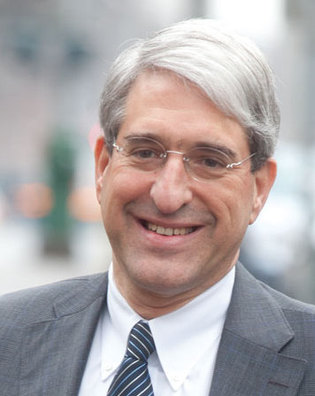 loading
loading
Q&A: Peter SaloveyConstruction plans and projectsOn those plans for new residential colleges—and other delayed projects. Kathrin Lassila ’81 is editor of the Yale Alumni Magazine.  Mark OstowView full imageY: Rick Levin [’74PhD], your predecessor, proposed that Yale College add two new residential colleges, but then the recession hit. What’s the status of that plan? S: The Yale Corporation [Yale’s board] approved expanding the size of the student body by about 15 percent quite some time ago, but the approval was contingent on fund-raising. And we’re making great progress. Our generous community of alumni and parents is supporting the idea of opening Yale to more students. A university like Yale, with such a stellar faculty, has an obligation to consider offering an education to more than six or seven percent of the students who hope to attend. That’s our admit rate at present, and it’s troubling, because large numbers of applicants who deserve a Yale experience aren’t admitted. Expansion won’t change these percentages by very much, but an additional, say, 200 students in each year’s cohort does represent an unmatched opportunity for some very deserving applicants. The number of applicants seeking admission to Yale College has doubled over the last decade. I sincerely believe we can maintain all that is special about Yale College while adding students. Nonetheless, we need to proceed carefully, and so we will be asking a group of wise faculty members and other leaders on campus to take a fresh look at the assumptions made more than five years ago, when the Corporation voted for expansion—assumptions about finances, academics, student life, campus resources—and ask ourselves what needs to be done when we expand the undergraduate student body. In this process we should strive to improve the student experience when we add students. I know we can find a winning formula. Y: Many construction projects have been on hold during the recession, but others are going forward. S: In the downturn we have emphasized upgrades to teaching spaces, using building maintenance funds that are a regular part of our operating budget. These have been smaller-scale projects, generally in the tens of millions, rather than hundreds of millions, of dollars. They include, for example, improvements to nearly all the major classroom spaces on Science Hill, and in parts of the Kline Chemistry Laboratory—an infrastructure nightmare. Gift-funded projects have been a focus: Hendrie Hall, SOM, and the Art Gallery are examples. Generous alumni, parents, and friends contributed to these marvelous projects. The new theater planned for quite some time for the School of Drama still needs a major donor, however. Nothing would thrill me more than to help our preeminent School of Drama gain facilities that are equivalent in quality to the quality of our faculty and students. Other projects I’m very interested in seeing through to completion include a new biology building on Science Hill and the renovation of the Hall of Graduate Studies. Y: What do you foresee for future construction? S: As the economy improves, and Yale’s endowment improves along with it, we will be developing a capital plan that includes assumptions about gifts and about borrowing. Although we hope that many of the projects I have mentioned will be funded through gifts, we will eventually be able to take on some new debt for major projects. Provost Polak’s and my goal is to get us on a schedule that will take some of the uncertainty out of the process of anticipating renovations and new construction. From talking to members of our faculty and to deans, I know that it’s less important to them to have their own building projects first in line than simply to know when those projects will be started. They want to have a sense of the timing so they can plan accordingly. I do, too!
The comment period has expired.
|
|